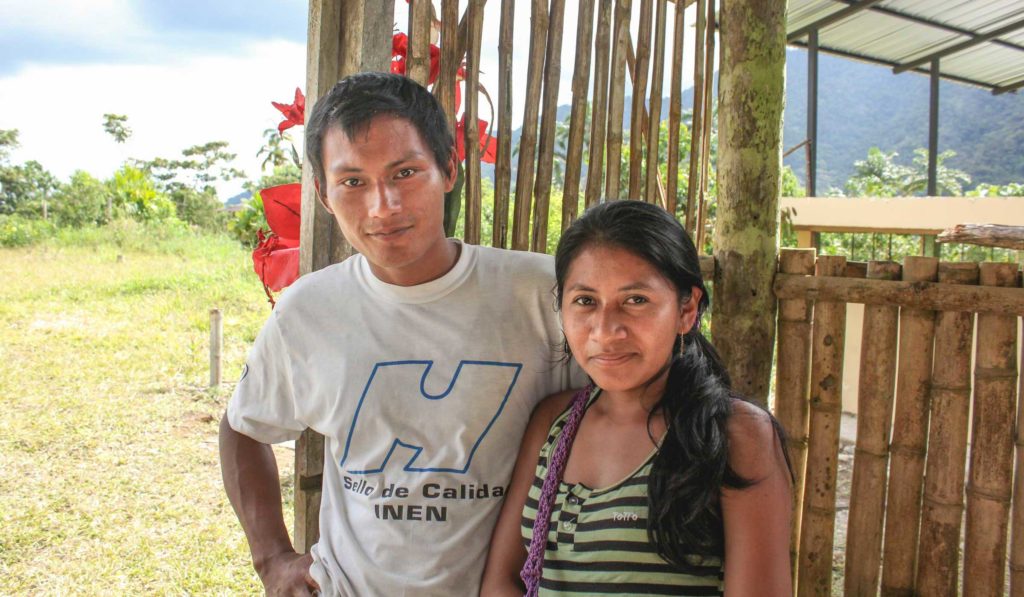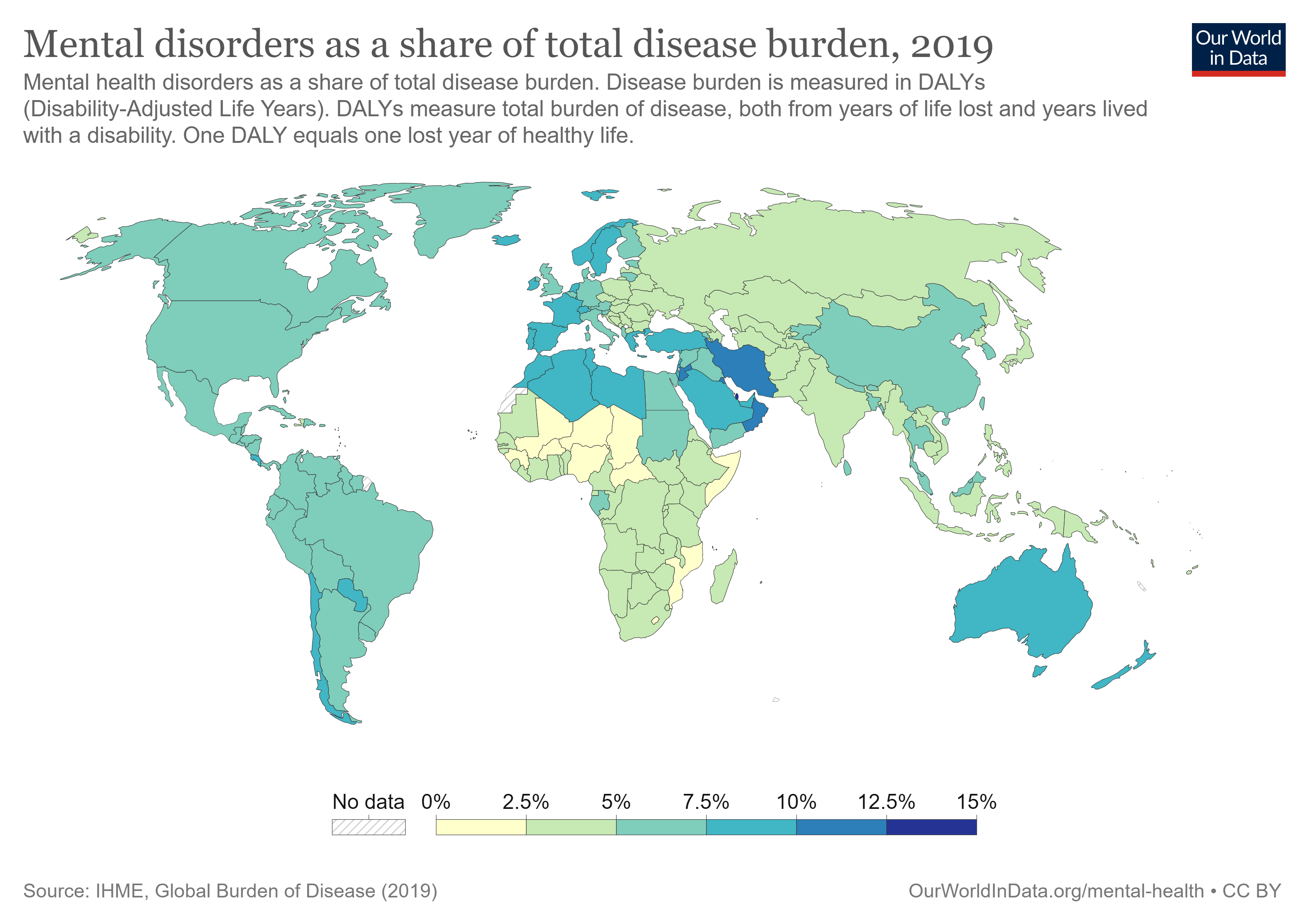The world is facing a mental health crisis
The WHO estimates that 5% of people in Latin America have depression, however, a lack of prioritization means that more than 3 out of 4 people in Latin America go untreated.
Ecuador, in particular, has some of the highest rates of depression in the region, which causes 8.3% of the total years lived with disability (YLD).
Hurdles to mental health in Ecuador
Low government spending: Mental health makes up less than 0.04% of the national health budget in Ecuador- 9X less than other countries in Latin America.
High private costs: 78% of the Ecuadorians work informally earning far below the minimum wage, meaning that private mental health care is not affordable.

The negative impacts of poor mental health are far-reaching
Marked by intense feelings of hopelessness and an inability to enjoy normal life, depression affects
almost every aspect of daily life, including:
- Relationship conflicts and higher rates of divorce
- Poor physical health, including higher probability of developing a physical disability
- 20x greater risk for suicide than the general population
The broader effects of poor mental health are numerous
Globally, it is estimated that:
- 12 billion productive days are lost each year due to depression causing absenteeism for both patients and their caregivers
- $2.5 trillion is the annual cost of mental health illness due to the loss of economic productivity and the direct costs of treatment
- This cost is expected to grow to $6.0 trillion per year by 2030
This is not the end of the story
Cost-effective, evidence-based solutations do exist. You can partner with local community leaders to bring depression treatment direct to the people who need it most.

This is not the end of the story.
Cost-effective, evidence-based solutations do exist. You can partner with local community leaders to bring depression treatment direct to the people who need it most.


